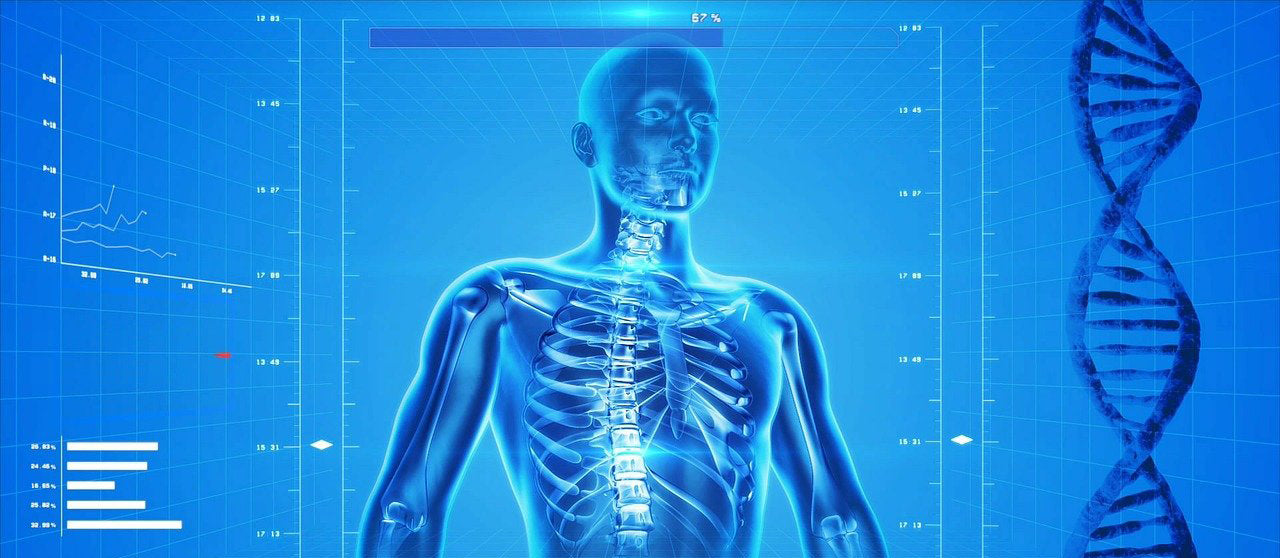
What is Probiotic? Benefits and Uses
Introduction
Live microorganisms that are consumed through fermented foods or supplements are known as probiotics.
Several studies have shown that the balance or imbalance of the bacteria present in your digestive system plays a vital role in overall health and disease.
Having a healthy balance of gut bacteria has been linked to a wide range of health benefits. Probiotics are responsible for this balance.
These include benefits for weight loss, digestive health, immune function, and more.
How Do They Work?
Research needs to be done to figure out how probiotics work but some of the ways they contribute towards you being healthy are:
- When you lose "good" bacteria in your body, for example after you take antibiotics, probiotics can help replace them and prevent serious infections.
- They can help balance your "good" and "bad" bacteria to keep your body working the way it should.
Types of Probiotics
Many different kinds of bacteria fall under the umbrella of probiotics.
Each bacteria has its benefits, but they mainly belong to two groups. Get your health care provider to advise what kind is most beneficial for you.
Lactobacillus: This may be the most common probiotic. It's the one you'll find in yogurt and other fermented foods. Different strains can help with diarrhea and may help people who can't digest lactose, the sugar in milk.
Bifidobacterium: You can find it in some dairy products. It may help ease the symptoms of irritable bowel syndrome (IBS) and some other conditions.
Saccharomyces boulardii is a yeast found in probiotics. It appears to help fight diarrhea and other digestive problems.
What Do They Do?
Between its many functions probiotics also help the flow of food in your gut by affecting nerves that are responsible for gut movement.
Researchers are still trying to figure out which are best for certain health problems. Some common conditions they treat are:
- Irritable bowel syndrome
- Infectious diarrhea (caused by viruses, bacteria, or parasites)
- Diarrhea caused by antibiotics
- Inflammatory bowel disease (IBD)
Some research shows they're useful for problems in other parts of your body. For example, some people have reported that they have helped with:
- Skin conditions, like eczema
- Oral health
- Urinary and vaginal health
- Preventing allergies and colds
Benefits
1. Probiotics Help Balance The Friendly Bacteria in Your Digestive System
The good bacteria that is in live organisms are found in the form of probiotics, it has immense health benefits if consumed.
Researchers believe that the benefits of probiotics stem from their ability to restore the balance of gut bacteria.
Several diseases, prolonged use of antibiotics, and unhealthy dietary choices can result in a decrease in the normal flora i.e. the 'good bacteria' of the body. This imbalance can result in an increased risk of opportunistic infections.
Probiotics replenish the displaced colonies and help restore optimal health.
Probiotics are usually found in fermented foods or taken as supplements. What’s more, they appear to be safe for most people.
2. Probiotics Can Help Prevent and Treat Diarrhea
The most popular use of probiotics is their ability to prevent diarrhea or being able to reduce the severity of it. A common side effect of taking antibiotics is diarrhea. This is caused because antibiotics disrupt the balance of good and bad gut bacteria.
Many studies suggest that using probiotics helped in reducing diarrhea associated with antibiotics. A study showed that probiotics reduced antibiotic-induced diarrhea by 42%.
Probiotics can also help with other forms of diarrhea not associated with antibiotics.
The effectiveness of probiotics depends, on the type and dose of the probiotic taken.
Strains such as:
- Lactobacillus rhamnosus
- Lactobacillus casei
- The yeast Saccharomyces boulardii
are most commonly associated with a reduced risk of diarrhea.
3. Probiotic Supplements Improve Some Mental Health Conditions
An increasing number of studies link gut health to mood and mental health. Studies done on both animals and humans concluded that probiotic supplements improve some mental health disorders.
A study focusing on the effect of probiotics on mental health found supplementing with Bifidobacterium and Lactobacillus strains for 1–2 months can improve anxiety, depression, autism, obsessive-compulsive disorder (OCD), and memory.
A study containing 40 depression patients also saw improvement after taking probiotics supplements.
Taking probiotic supplements for 8 weeks decreased depression levels and reduced levels of C-reactive protein (a marker of inflammation) and hormones such as insulin, compared to people who did not take a probiotic.
4. Certain Probiotic Strains Can Help Keep Your Heart Healthy
Research also found that probiotics may help with heart health by lowering cholesterol levels and blood pressure.
Certain lactic acid-producing bacteria may reduce cholesterol by breaking down bile in the gut.
Bile, is a naturally occurring fluid that is mostly made of cholesterol, helps digestion.
The breaking down of bile by probiotics helps prevent reabsorption in the gut, where it could enter the blood as cholesterol.
Another study conducted over 6 months found no changes in total or LDL cholesterol. However, the researchers did find a small increase in HDL (“good”) cholesterol.
A review was done of 9 studies and it concluded that probiotics can help lower blood pressure. And that probiotics supplements reduce blood pressure but only by small amounts.
5. Probiotics May Reduce the Severity of Certain Allergies and Eczema
The severity of eczema can be reduced in certain children and infants by the consumption of probiotics.
A study found that eczema symptoms improved for infants fed probiotic-supplemented milk, compared to infants fed milk without probiotics.
Another study followed children of women who took probiotics during pregnancy. Those children had an 83% lower risk of developing eczema in the first two years of life.
However, the relationship between eczema and probiotics still needs to be explored to get conclusive evidence.
Some probiotics may also reduce inflammatory responses in people with milk or dairy allergies. However, more research needs to be done to be sure.
6. Probiotics May Help Boost Your Immune System
Probiotics can also be used to give your immune system a much-needed boost and repress the growth of harmful bacteria.
Also, some probiotics have been shown to promote the production of natural antibodies in the body. They may also boost immune cells like the IgA-producing cells, T lymphocytes, and natural killer cells.
A large review found that taking probiotics reduced the likelihood and duration of respiratory infections. However, there was minimal evidence.
The probiotic Lactobacillus crispatus has also been known to reduce the risk of urinary tract infections (UTIs) in women by 50%.
7. Probiotics May Help You Lose Weight and Belly Fat
Probiotics may help with weight loss through several various mechanisms.
Such as, some probiotics can prevent the absorption of dietary fat in the intestine. The storage of fat does not take place and it is excreted in the form of feces.
They may also help with weight loss directly. In one study, dieting women who took Lactobacillus rhamnosus for 3 months lost 50% more weight than women who didn’t take a probiotic.
Another study of 210 people found that taking even low doses of Lactobacillus gasseri for 12 weeks resulted in an 8.5% reduction of belly fat.
It is important to keep in mind that not all probiotics cause weight loss some can cause weight gain like lactobacillus.
More studies are needed to clarify the link between probiotics and weight.
MAKTREK Bi-Pass Technology
The MAKTrek® 3-D Probiotic Delivery System makes sure that the probiotic bacteria that are essential for your health remains safe. The 3 Ds of Bi-pass technology are:
1st D – Two-Step Acid Protection
- The probiotic bacteria are enrobed by an extract of Brown Seaweed (Lessonia nigrescens) called complex marine polysaccharides.
- Once blended the final powder is encapsulated.
- When the capsule is swallowed it will come in contact with the stomach acid. The acid will then dissolve the capsule. The complex marine polysaccharides will form a secondary internal capsule protecting the living probiotic cells from the acid.
2nd D – In-Transit Buffering
- This step is a proprietary all-natural buffering system that helps to support the in-transit digestive environment condition. Probiotic cells prefer balance and this system supports this balance.
3rd D – Additional Safeguards
- The researched and documented strains used are naturally equipped to handle exposure to some common environmental elements that can and do make survival difficult for these beneficial probiotic bacteria.
The MAKTrek® 3-D Probiotic Delivery System has been scientifically studied using a specified stomach acid exposure simulation. During this simulation, the MAKTrek® 3-D protected probiotic supplement showed greater survival than simply acid protection alone.
40 billion CFU
Benefits
- Gives you a healthy digestive system
- Helps maintain strong immunity
- 40 billion CFU's per 2 Caps*
Product Description
Probiotics 40 Billion is a blend of 4 strains (40 billion CFU/g) of Probiotic Bacteria.
Our Probiotic supplement is designed to provide a high potency and balance of beneficial bacteria.
By taking this product regularly Probiotic-40 can help assist in maintaining healthy intestinal flora. This supplement also contains FOS to help with acidophilus and Bifidus.
MAKTREK Bi-Pass Technology is a protective coat over the capsule that keeps the probiotics usable while it is in the stomach.
Buy Now:


